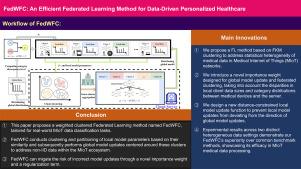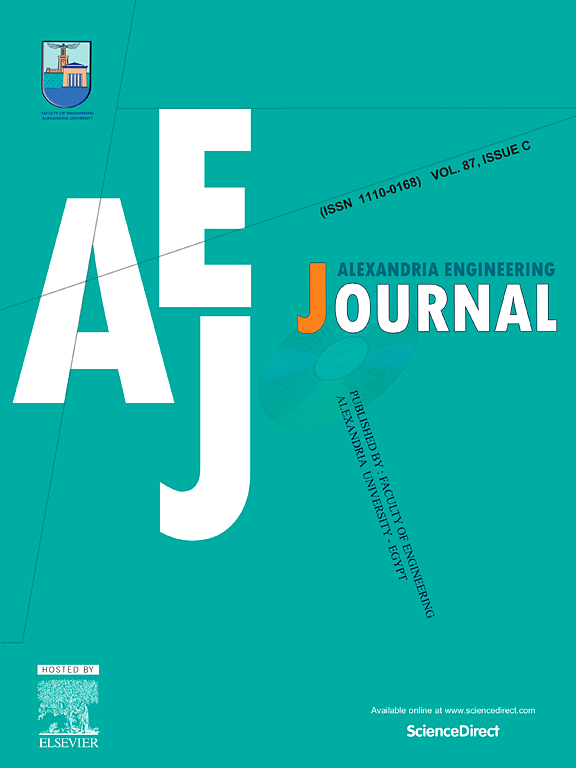FedWFC:利用加权模糊聚类进行联合学习,处理 MIoT 网络中的异构数据
IF 6.8
2区 工程技术
Q1 ENGINEERING, MULTIDISCIPLINARY
引用次数: 0
摘要
医疗数据来源的多样性和分布的不均衡性造成了医疗物联网(MIoT)网络内的统计异质性。在这种情况下,必须对患者数据进行综合分析,以提供更精确的诊断和治疗策略,从而使个性化医疗成为不可或缺的一部分。此外,通过网络传输医疗数据会引发对数据隐私的担忧,因此有必要进行全面考虑。为应对这些挑战,我们提出了一种联合学习方法--FedWFC,该方法结合了新颖的重要性权重和模糊均值聚类,可有效处理 MIoT 网络中的异构医疗数据。首先,我们利用模糊均值法对来自 MIoT 设备的本地模型参数进行聚类和分区,从而能够基于这些聚类对多个全局模型进行集中更新。这种以集群为中心的方法简化了本地模型的个性化更新。其次,新重要性权重的引入使我们能够收紧全局模型更新的优化误差约束。实验表明,与现有方法相比,FedWFC 的宏观 F1 分数提高了 4.24%,微观准确率提高了 4.99%,凸显了其在 MIoT 数据处理中的有效性。本文章由计算机程序翻译,如有差异,请以英文原文为准。

FedWFC: Federated learning with weighted fuzzy clustering for handling heterogeneous data in MIoT networks
The diversity of sources and uneven distribution of medical data contributes to the statistical heterogeneity within the Medical Internet of Things (MIoT) networks. In this context, comprehensive analysis of patient data is imperative to provide more precise diagnoses and treatment strategies, rendering personalized medical treatment indispensable. Moreover, the transmission of medical data over networks raises concerns regarding data privacy, necessitating thorough consideration. To address these challenges, we propose FedWFC, a federated learning method that combines a novel importance weight with fuzzy k-means clustering to effectively handle the heterogeneous medical data in MIoT networks. Firstly, we utilize fuzzy k-means for clustering and partitioning local model parameters from MIoT devices, enabling centralized updates of multiple global models based on these clusters. This cluster-centric approach streamlines personalized updates for local models. Secondly, the introduction of the new importance weight allows us to tighten the optimization error bound for global model updates. Experiments show that FedWFC improves the macro F1 score by 4.24% and the micro accuracy by 4.99% compared with existing methods, highlighting its effectiveness in MIoT data processing.
求助全文
通过发布文献求助,成功后即可免费获取论文全文。
去求助
来源期刊

alexandria engineering journal
Engineering-General Engineering
CiteScore
11.20
自引率
4.40%
发文量
1015
审稿时长
43 days
期刊介绍:
Alexandria Engineering Journal is an international journal devoted to publishing high quality papers in the field of engineering and applied science. Alexandria Engineering Journal is cited in the Engineering Information Services (EIS) and the Chemical Abstracts (CA). The papers published in Alexandria Engineering Journal are grouped into five sections, according to the following classification:
• Mechanical, Production, Marine and Textile Engineering
• Electrical Engineering, Computer Science and Nuclear Engineering
• Civil and Architecture Engineering
• Chemical Engineering and Applied Sciences
• Environmental Engineering
 求助内容:
求助内容: 应助结果提醒方式:
应助结果提醒方式:


